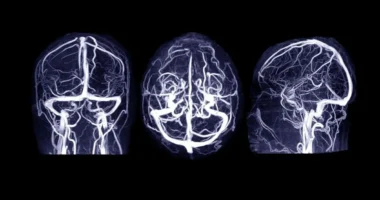Green tea is a beverage that has been extensively studied for its health benefits. It is rich in antioxidants known as catechins, which help protect the body from free radicals. Alongside caffeine and L-theanine, which are also present in green tea, these compounds contribute to the protection of the brain. A recent study has linked the consumption of green tea to a reduction in white matter lesions in healthy elderly Japanese individuals, suggesting it may provide a level of protection against dementia. This report was published in the journal Science of Food by Nature Portfolio.
The authors noted that coffee and tea are widely consumed beverages that contain caffeine, polyphenols, and vitamins, all of which have neuroprotective effects. They stated, “It is known that ingredients such as epigallocatechin gallate from green tea, theaflavins from black tea, and chlorogenic and caffeic acids have anti-inflammatory properties,” they expressed. Furthermore, they indicated that drinking three or more cups a day could help prevent cognitive decline, writing, “However, longitudinal prospective studies and basic research are needed to validate our results,” the experts added.
Researchers from various institutions across Japan collaborated to analyze data from 8,766 volunteers aged 65 and older, collected as part of a survey conducted between 2016 and 2018. They utilized a Food Frequency Questionnaire to assess the participants’ consumption, while also performing brain magnetic resonance imaging (MRI) to evaluate total hippocampal volume. The study found that a higher intake of green tea was associated with a lower risk of dementia, while those who consumed coffee did not show significant differences in total hippocampal brain volumes.
The study considers factors such as independent risk for cognitive decline associated with vascular disease and Alzheimer’s, which often present with severe atrophy in patients. According to the findings, on average, participants consumed three cups of green tea per day, which was a 3% increase compared to those who drank only one cup daily. Those who consumed seven to eight cups showed a significant statistical difference. While the consumption of green tea did not appear to affect the hippocampus or total brain volume, it may indicate cognitive benefits.
It is also important to note that none of the participants were diagnosed with depression, and the presence of the APOE4 gene variant was linked to hypertension and increased blood pressure. The beneficial effects attributed to antihypertensives have been reported to regularly reduce both systolic and diastolic blood pressure levels. The researchers clarified that coffee consumption negatively affects blood pressure and may impact white matter.
Additionally, all participants were Japanese, which implies certain genetic and lifestyle factors. Future studies could expand the analysis to a broader group of individuals, the researchers asserted. The health benefits of green tea may extend to mental health, as nutrients in green tea are associated with a 21% lower probability of developing depression. The combination of L-theanine promotes a calm yet alert mind. According to Phytomedicine, green tea has anti-inflammatory properties, and Nutrition Reviews suggests it helps maintain overall health.









